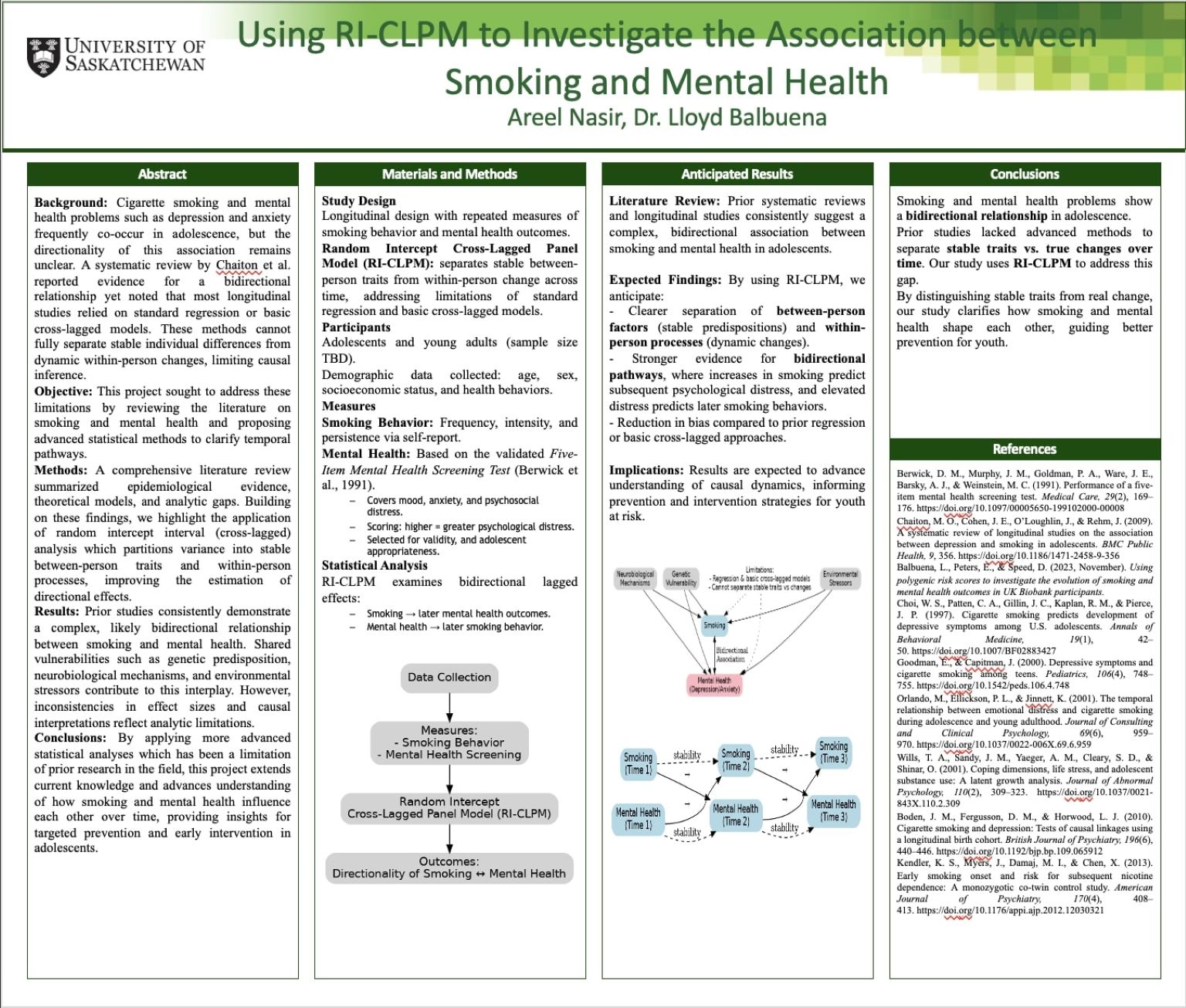
Using RI-CLPM Modeling to Investigate the Links between Smoking and Mental Health
Areel Nasir
Background: Cigarette smoking and mental health problems such as depression and anxiety frequently co-occur in adolescence, but the directionality of this association remains unclear. A systematic review by Chaiton et al. reported evidence for a bidirectional relationship yet noted that most longitudinal studies relied on standard regression or basic cross-lagged models. These methods cannot fully separate stable individual differences from dynamic within-person changes, limiting causal inference.
Objective: This project sought to address these limitations by reviewing the literature on smoking and mental health and proposing advanced statistical methods to clarify temporal pathways.
Methods: A comprehensive literature review summarized epidemiological evidence, theoretical models, and analytic gaps. Building on these findings, we highlight the application of random intercept interval (cross-lagged) analysis which partitions variance into stable between-person traits and within-person processes, improving the estimation of directional effects.
Results: Prior studies consistently demonstrate a complex, likely bidirectional relationship between smoking and mental health. Shared vulnerabilities such as genetic predisposition, neurobiological mechanisms, and environmental stressors contribute to this interplay. However, inconsistencies in effect sizes and causal interpretations reflect analytic limitations.
Conclusions: By applying more advanced statistical analyses which has been a limitation of prior research in the field, this project extends current knowledge and advances understanding of how smoking and mental health influence each other over time, providing insights for targeted prevention and early intervention in adolescents.
